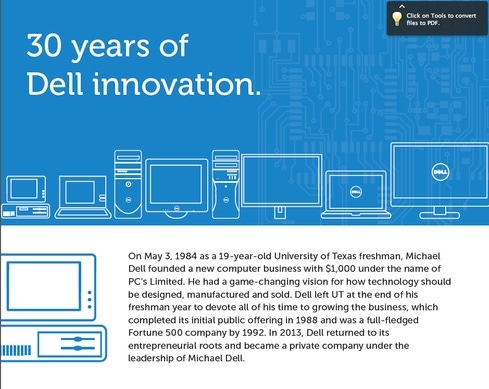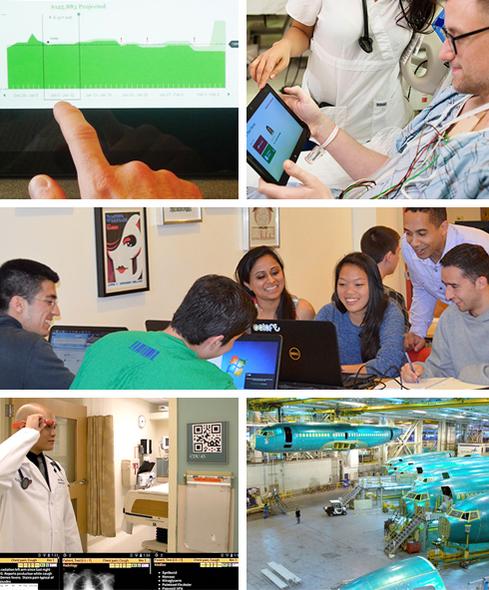Dell Turns 30: Where To Next?
Dell celebrates its 30th birthday while working to reinvent itself for the cloud era. What do you want most from Dell now?


20 Great Ideas To Steal In 2014
20 Great Ideas To Steal In 2014 (Click image for larger view and slideshow.)
Marking its 30th year in business over the weekend, Dell faces a future that doesn't look much like its past.
On May 3, 1984, Michael Dell founded PCs Limited in his dorm room at the University of Texas in Austin. Four years later, he would change the company's name to his own and take the company public.
Dell soared for two decades, making its founder a billionaire and earning a reputation for affordable, reliable computers delivered through efficient manufacturing and logistics.
But personal computer sales slowed for Dell in 2006 and the iPhone arrived in 2007, marking the beginning of the mobile revolution. That was the year Michael Dell resumed leadership of his company in an effort to reduce dependence on revenue from sales of personal computers.
Acquisitions to pave the way to greener pastures such as storage, security, and cloud computing followed: EqualLogic, Perot Systems, Compellent, and SecureWorks were a few of the most noteworthy deals.
Last October, Michael Dell succeeded in his bid to take his public company private, to insulate it from the pressures of quarterly reporting as he reorients his namesake.
In a letter to employees celebrating his company's 30th birthday, Dell said that six months after going private, the results are promising. "Our PC share is up worldwide for the fifth consecutive quarter," said Dell. "We’re leading the industry in enterprise flash deployments, and leading with our security and cloud integration solutions. Our Services business is rapidly acquiring new customers and huge deals in key verticals like healthcare and finance."

Citing other successes, such as the company's medical image service, Unified Clinical Cloud Archive, and its efforts to deliver enterprise datacenter services, Dell urged his employees not to dwell on the past because "the future is full of promise."
But is Dell's future full of revenue?
Forrester Research analyst David Johnson said in a phone interview that although it has been a long road for Dell to shift from PCs to services and infrastructure, he thinks it's getting there.
To succeed, however, he said Dell needs to help companies deal with the increasing complexity of IT systems. Dell needs to deliver "a molecule and not a collection of atoms," he said. That means working with other IT service partners. Dell has a history of making technology easier to buy, which isn't quite the same as making it easier to use and manage.
The complexity of modern IT might prove difficult to banish. The Wintel monoculture is gone. In its place, there's a lot more complexity. Platforms don't matter nearly as much today as apps and cloud services. Connecting systems through software APIs tends to require more effort than connecting standardized components with wires and cables.
"The days of platforms for servers and end-users are at an end," said Johnson. "The cloud and mobile shakes that up."
How does Dell proceed from here? You tell us. What would you like to see Michael Dell do in his next act? A breakthrough mobile device? A particular kind of cloud service? Share your opinion in the comments section below.
Solid state alone can't solve your volume and performance problem. Think scale-out, virtualization, and cloud. Find out more about the 2014 State of Enterprise Storage Survey results in the new issue of InformationWeek Tech Digest.
About the Author(s)
You May Also Like
How to Amplify DevOps with DevSecOps
May 22, 2024Generative AI: Use Cases and Risks in 2024
May 29, 2024Smart Service Management
June 4, 2024







